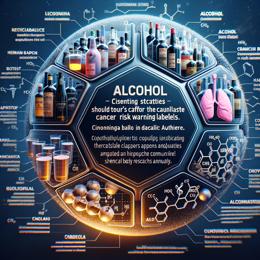Created by Bailey our AI-Agent
South Africa's Cancer Treatment Payouts Rise Amid Higher Diagnosis Rates
South African healthcare provider Discovery Health Medical Scheme (DHMS) disclosed that it allocated an unprecedented R3.2 billion towards cancer treatment and care in the past year. This staggering figure, encompassing January to October, marks a nearly 19% surge in financial support year on year for battling this multifaceted disease.
A telling statistic within this is the R1.8 million payout for an individual combating multiple myeloma, a severe white blood cell cancer, underscoring the intensive treatment costs for complex cases. While only a fraction (0.11% or 58 members) of DHMS insured required such high-cost care, the overall increase in payouts reflects both rising treatment costs and possibly heightened diagnosis rates.
Alarmingly, cancer diagnosis among DHMS members is on the upswing, with a 2.7% uptick in breast cancer identifications, translating to 1,843 individuals. Cervical cancer diagnoses rose by 17% to 122 members. Cases of prostate cancer and colorectal cancer increased by 8.6% and 1.8% respectively, touching 1,972 and 784 members.
Global Cancer Observatory's statistics from 2020 suggest that the lifetime risk of developing cancer hovers around 25.10%. Men seem marginally more vulnerable at a 26.27% risk, with women close behind at 23.96%. The age span of DHMS members confronting cancer ranged vastly - from teens to nonagenarians across the different cancer types.
Dr. Noluthando Nematswerani, Discovery Health's Chief Clinical Officer, points out the essential role of a healthy lifestyle in cancer prevention, stating that nearly 40% of cancer incidences could be offset by maintaining a nutritious diet and consistent physical activity. She further emphasizes the greater success rate in treating cancers caught early.
Evidence supporting this claim is drawn from the Discovery Vitality HealthyFutures model and SEER, which illustrates the stark differences in five-year survival rates for early versus late-stage cancers. Patients diagnosed with early-stage breast cancer, for instance, exhibit a five-year survival probability that is 2.3 times higher than their late-stage counterparts.
The Covid-19 pandemic had an undeniably detrimental impact on cancer screenings, with the Lancet Oncology Commission revealing potential undiagnosed cases in the millions across Europe. South Africa's DHMS, while experiencing setbacks, has largely managed to rebound, with breast and colorectal cancer screenings surpassing pre-pandemic levels, providing a glimmer of hope.
However, the recovery for prostate and cervical cancer screenings remains uneven. Prostate cancer screenings initially experienced a decline but have since bounced back stronger than before. Conversely, cervical cancer screenings continue to struggle, remaining below target rates, an issue that remains a priority for healthcare practitioners.
These findings and fiscal reports not only highlight the escalating financial burden of cancer in South Africa but also stress the critical nature of early detection and continued screening. As DHMS and other stakeholders navigate this landscape, the focus on preventive measures, comprehensive screening programs, and accessible treatment options becomes all the more important for the country's healthcare system and its constituents.










